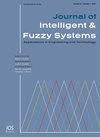用于兴趣点推荐的基于时间地理注意力的转换器
IF 1
4区 计算机科学
Q3 COMPUTER SCIENCE, ARTIFICIAL INTELLIGENCE
引用次数: 0
摘要
兴趣点(POI)推荐是社交网络分析领域中最重要的任务之一。近年来,为了提高POI推荐任务的模型性能,人们提出了许多努力。已有研究表明,时间因素和地理因素是影响用户决策的两个重要的语境因素。然而,他们只从单一的语境因素中学习poi和用户的表征,并在最后阶段融合所学到的表征,忽略了不同语境因素的相互作用,导致学习到poi和用户的次优表征。为了克服这一差距,我们提出了一种新的基于时间-地理注意力的变压器(TGAT)用于POI推荐任务。具体来说,TGAT开发了一种混合序列采样策略,该策略从用户签入记录生成的不同上下文因素POI图中采样POI序列。通过这种方式,不同背景因素的相互作用可以被小心地保存下来。然后,TGAT通过基于变压器的神经网络主干从采样序列中学习poi的表示。此外,提出了一种加权聚合策略来融合从不同上下文因素中学习到的表示。在实际数据集上的大量实验结果证明了TGAT的有效性。本文章由计算机程序翻译,如有差异,请以英文原文为准。
Temporal-geographical attention-based transformer for point-of-interest recommendation
Point-of-Interest (POI) recommendation is one of the most important tasks in the field of social network analysis. Many efforts have been proposed to enhance the model performance for the POI recommendation task in recent years. Existing studies have revealed that the temporal factor and geographical factor are two crucial contextual factors which influence user decisions. However, they only learn representations of POIs and users from the single contextual factor and fuse the learned representations in the final stage, which ignores the interactions of different contextual factors, leading to learning suboptimal representations of POIs and users. To overcome this gap, we propose a novel Temporal-Geographical Attention-based Transformer (TGAT) for the POI recommendation task. Specifically, TGAT develops a hybrid sequence sampling strategy that samples the sequence of POIs from the different contextual factor POI graphs generated by the users’ check-in records. In this way, the interactions of different contextual factors can be care-fully pre-served. Then TGAT conducts a Transformer-based neural network backbone to learn representations of POIs from the sampling sequences. In addition, a weighted aggregation strategy is proposed to fuse the representations learned from different context factors. The extensive experimental results on real-world datasets have demonstrated the effectiveness of TGAT.
求助全文
通过发布文献求助,成功后即可免费获取论文全文。
去求助
来源期刊

Journal of Intelligent & Fuzzy Systems
工程技术-计算机:人工智能
CiteScore
3.40
自引率
10.00%
发文量
965
审稿时长
5.1 months
期刊介绍:
The purpose of the Journal of Intelligent & Fuzzy Systems: Applications in Engineering and Technology is to foster advancements of knowledge and help disseminate results concerning recent applications and case studies in the areas of fuzzy logic, intelligent systems, and web-based applications among working professionals and professionals in education and research, covering a broad cross-section of technical disciplines.
 求助内容:
求助内容: 应助结果提醒方式:
应助结果提醒方式:


